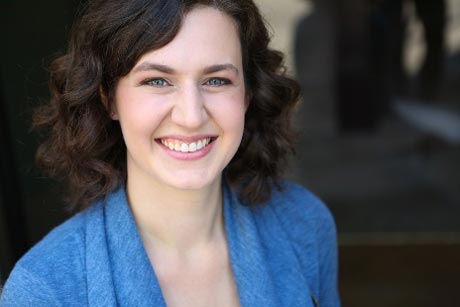Student Scholarship Winner: Holly Griffith
October 27, 2020
The essays shared here include the data cited and opinions expressed by the student applicants in response to a request to “Provide a one-page essay about the role some aspect of solid waste management (e.g., education, recycling, food waste recovery, composting, landfilling, etc.) plays in addressing an environmental issue currently in the news. What are the responsibilities of individuals who generate the waste (including producers/manufacturers and consumers) versus the professionals tasked with managing the waste?”
From Upheaval Comes Opportunity
By: Holly Griffith
The waste industry has had some rather significant challenges in the last few years. One such challenge originated with China’s Blue Skies initiative which impacted several State recycling programs and created uncertainty regarding if recycled materials were truly being recycled well. This policy caused, and is still causing, great upheaval. However, with that upheaval comes a significant opportunity that can be leveraged to create a more effective and transparent system that better serves and supports our society and its varying needs.
I am pursuing a degree in Environmental Management and Policy (EMP) in Lund, Sweden with the intention of leveraging that opportunity with knowledge, enthusiasm, and a deep passion for the innovative opportunities that come with material management. The waste industry supports a rapidly evolving society using materials that are constantly growing in complexity. Increased use of low grade, flexible, light weight plastics with no strong recycling opportunities and high contamination potential has become an increasingly apparent challenge. My program’s interdisciplinary, applied approach is providing me with the tools I need to meet those challenges through modules discussing eco-design strategy, Life Cycle Assessment practices, and extended producer responsibility policies. In a recent course, I drafted an evaluation and report on the Basel Convention, which helped me better investigate the nuances of transboundary waste shipment and understand the policy’s limitations and necessity.
My studies have been supported by an impressive professorship and cohort from around the world. Hailing from nations such as India, China, Germany, and Mexico; they all bring unique perspectives and expertise that have assisted me in my goals to expand my knowledge and grasp of international waste impacts and systems. These professors include Thomas Lindquist, the originator of the concept of extended producer responsibility, who has helped inform my learning, provide perspective on how to construct successful policies, and consider waste complexly in a way that supports the needs of the present. This network will support and guide my future work, and will give me thoughtful, dynamic perspective when I need views beyond my own.
Courses such as the Fundamentals of Technical Systems and Corporate Environmental Management provide me with an engineering perspective, giving me a better foundation in how different utility systems function and how cleantech solutions can be used to improve their processes. These courses, as well as tours of waste to energy facilities, wastewater treatment facilities, and biomass plants, have given me a deep comprehension of the engineering behind different waste management systems and an understanding of what they require to operate well. Using this knowledge along with my previous career as a waste consultant, I will be equipped to understand the deeper workings of technical systems and identify when systems are successful and when they may need to be rethought to fit a more effective, streamlined approach.
I am currently putting theory into practice in my Business Consultancy course, working with an international heat exchanger manufacturer to evaluate the scope three emissions of their downstream business to business product and assisting them in evaluating what actually happens to recyclables in countries like the US, China, India, and Italy. This work will help them better understand their true impact and the international implications of the transboundary movement of recyclables. In my future career, I plan to use this experience to guide my understanding of the variations between the recyclable processing of different nations, to develop greater skills in interfacing with international industry professionals in transboundary contexts, and to glean greater transparency and certainty in that work.
In my thesis work, I plan to examine current recycling paradigms and explore what opportunities exist for more adaptive system development. I plan on assessing how waste management infrastructure needs to shift to fit a changing cultural and global context, and how we, as industry representatives, community advocates, and policy professionals can cultivate the way we approach existing infrastructure to ensure we are adaptive and considered as we meet rapidly shifting current needs. With this work, I am dedicated to building myself into a professional who is a flexible and dynamic representative of a system that serves a vibrant, ever changing global society that needs a waste management system that shifts to meet it.
About the Author:
 Holly Griffith
Holly Griffith
Holly Griffith is in her second and final year of an MSc in Environmental Management and Policy at Lund University in southern Sweden. Prior to her studies, Holly worked in Seattle, Washington as a Program Coordinator with the University of Washington’s Recycling team and as a solid waste management consultant at Ecova (now Engie Impact). Her professional history as well as an academic background in sociological legal studies drives her passion for adaptive sustainable solutions that meet the needs of our rapidly shifting modern society. Ms. Griffith was chosen to win the Robert P. Stearns/SCS Engineers Scholarship.







Leave a comment